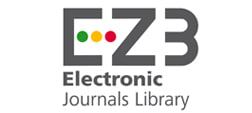Abstract
Breast cancer (BC) progression relies heavily on extracellular matrix degradation, mediated in part by matrix metalloproteinase-7 (MMP-7). While overexpression of MMP-7 has been implicated in multiple cancers, data from Middle Eastern populations remain limited.
This study examined MMP-7 gene expression and polymorphism patterns, with emphasis on rs11225307, in breast cancer versus benign fibroadenoma (FA) tissues among women in Basrah, Iraq. Thirty-seven BC and twenty-three FA patients were enrolled. MMP-7 mRNA expression was quantified using qRT-PCR and normalized to β-actin, while polymorphisms were analyzed through Sanger sequencing of eight SNPs and allele-specific PCR for rs11225307. Statistical significance was set at p < 0.05.
MMP-7 expression was significantly upregulated in BC tissues, showing a 4.4-fold increase compared to FA (ΔΔCt, p < 0.05). Sequencing revealed monomorphic wild-type genotypes across eight SNP sites. However, rs11225307 exhibited polymorphism, with allele frequencies of A (86%) and C (14%) and genotype distributions of AA (74%), AC (24%), and CC (2%). No significant association was observed between MMP-7 expression and tumor grade.
Conclusion: Elevated MMP-7 expression is a distinguishing molecular feature of breast cancer compared to fibroadenoma in this Iraqi cohort, supporting its role as a marker of tumor aggressiveness. While most tested SNPs were conserved, rs11225307 showed polymorphic variation, warranting further investigation into its prognostic significance. These findings reinforce MMP-7 as a promising biomarker and potential therapeutic target in breast cancer.
Recommended Citation
Jassam, Heba; Ibraheim, Wijdan Nazar; Abdulridha, Mazin Hawwaz; Abood, Rafid Adil; and Nanjem, Karam B.
(2025),
MMP-7 Expression and rs11225307 Polymorphism in Breast Cancer and Fibroadenoma: A Molecular Study in Basrah, Iraq,
AUIQ Complementary Biological System: Vol. 2:
Iss.
3, 54-64.
DOI: https://doi.org/10.70176/3007-973X.1045
Available at:
https://acbs.alayen.edu.iq/journal/vol2/iss3/6
Digital Object Identifier (DOI)
10.70176/3007-973X.1045




















Follow us: